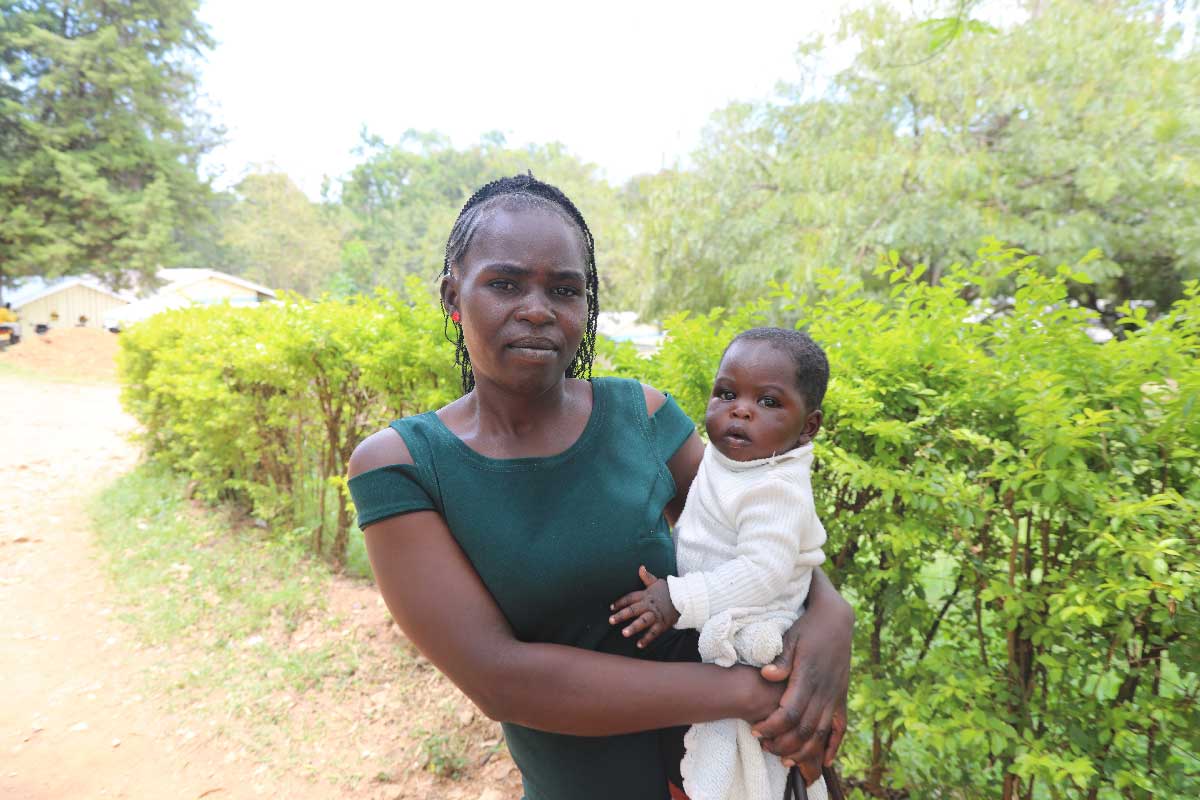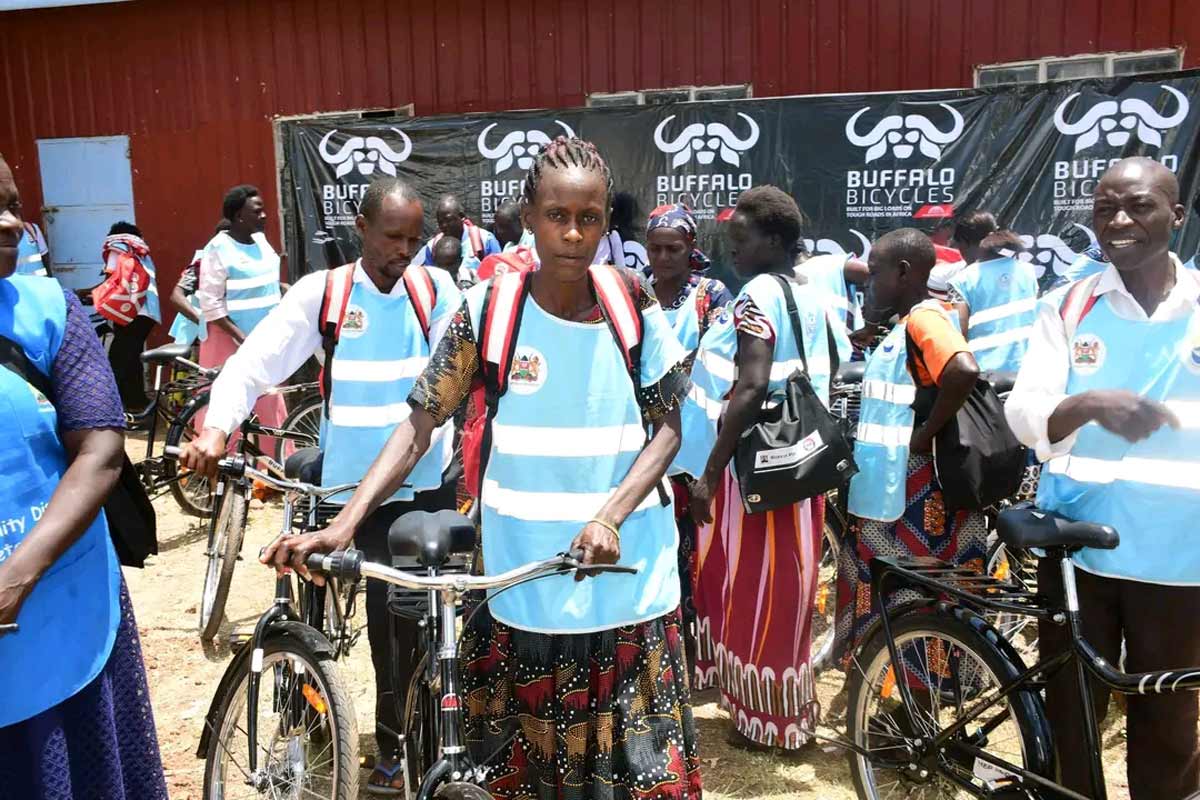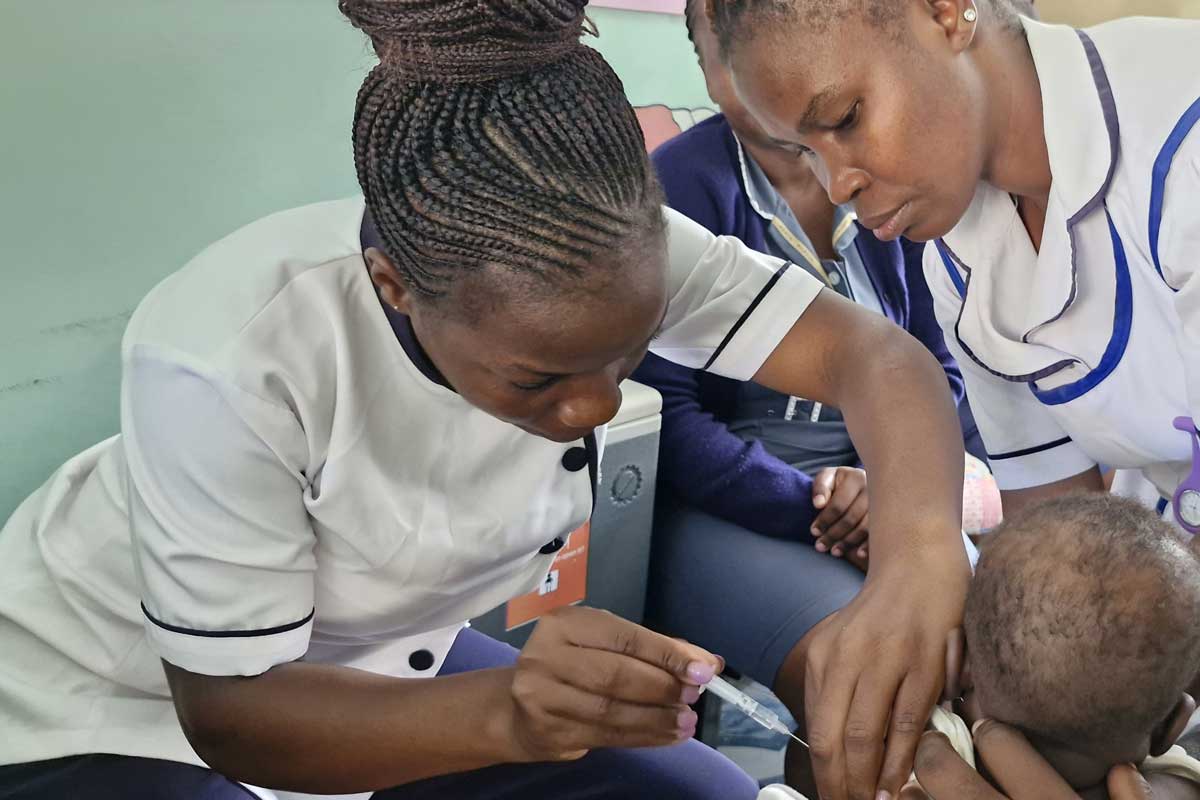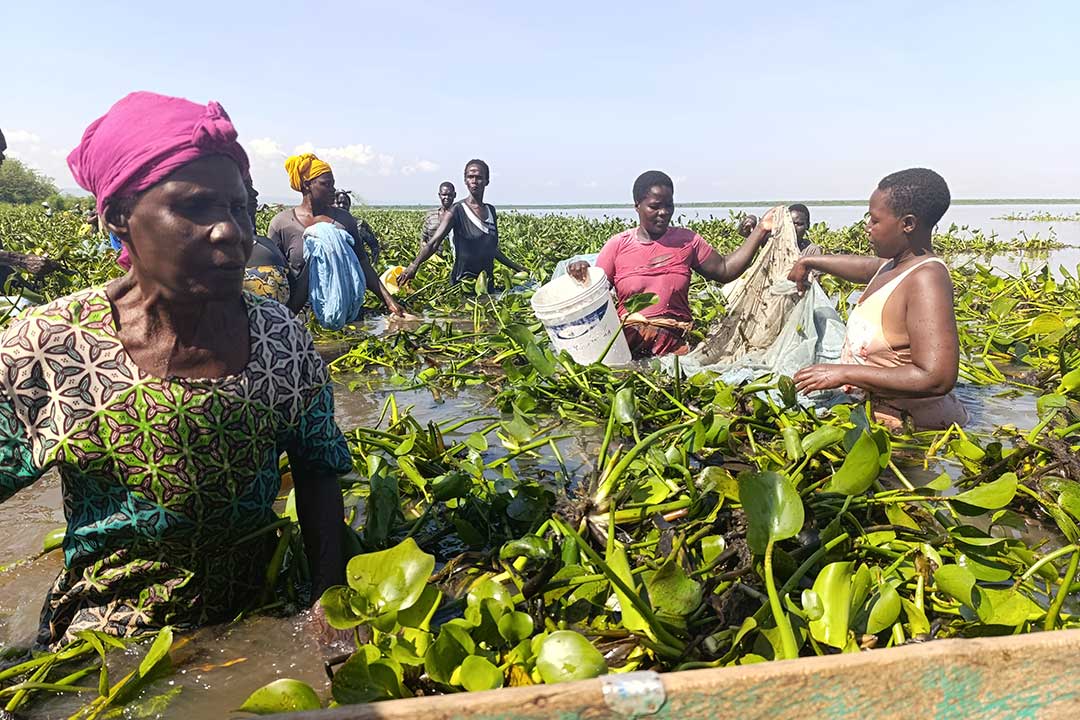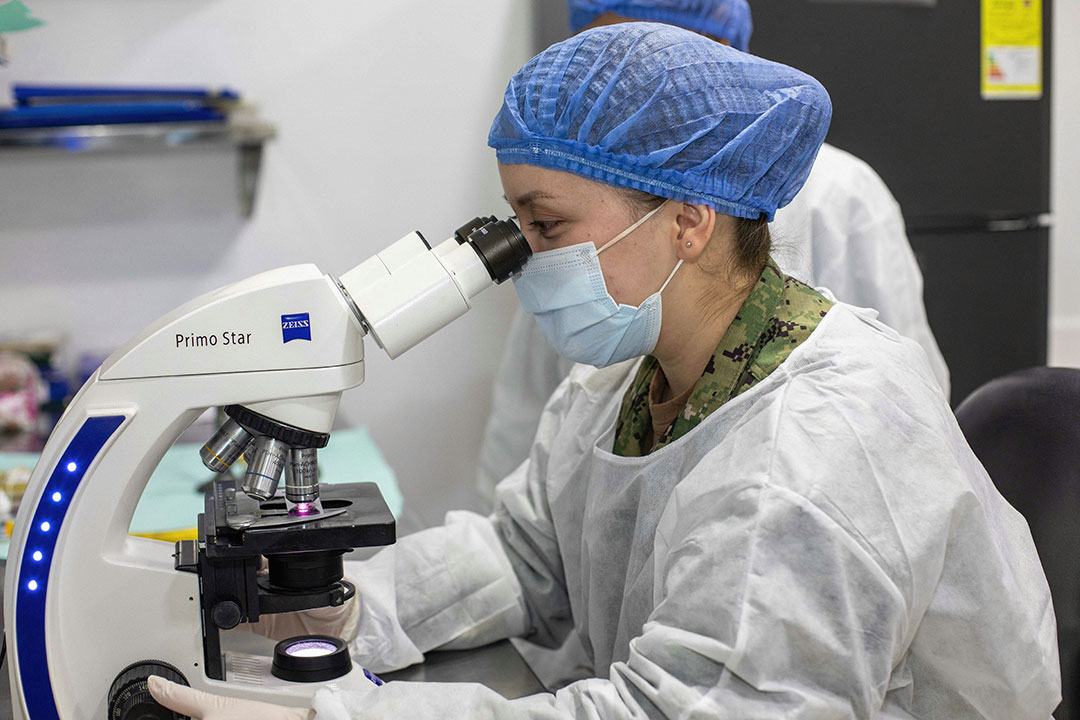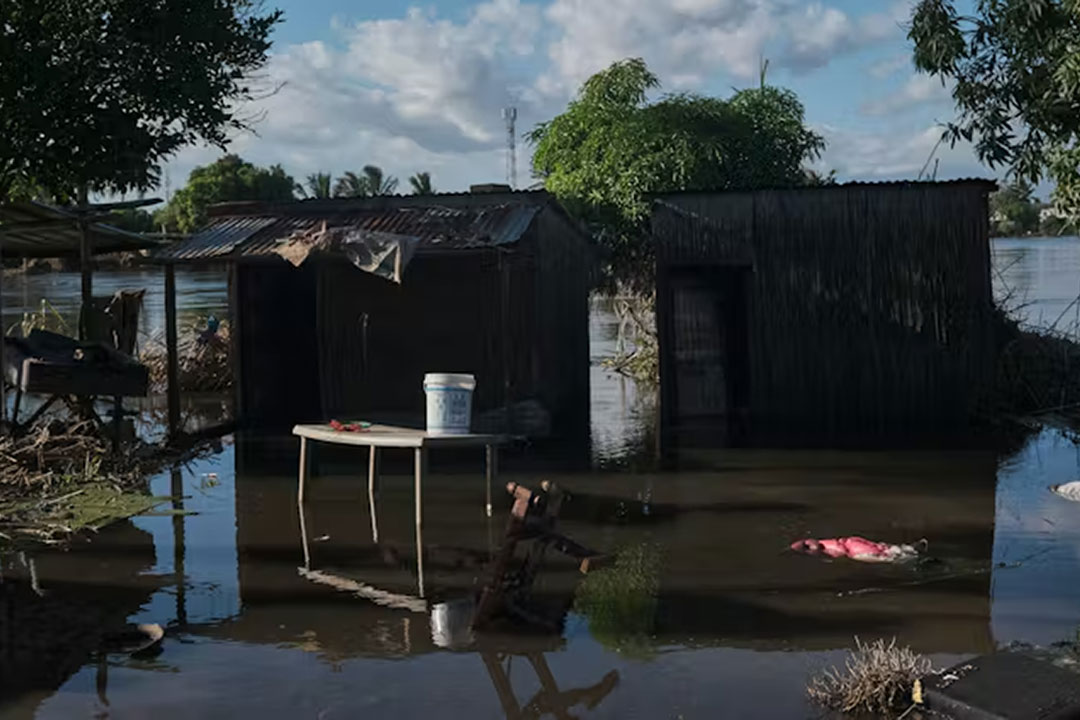Toddlers, camels, goats, and cows: it’s vaccination day in Turkana
Keeping roving pastoralists protected is a challenge for the Kenyan health system. Bundling care for animals and humans makes irresistible sense.
- 26 September 2023
- 7 min read
- by Angeline Anyango
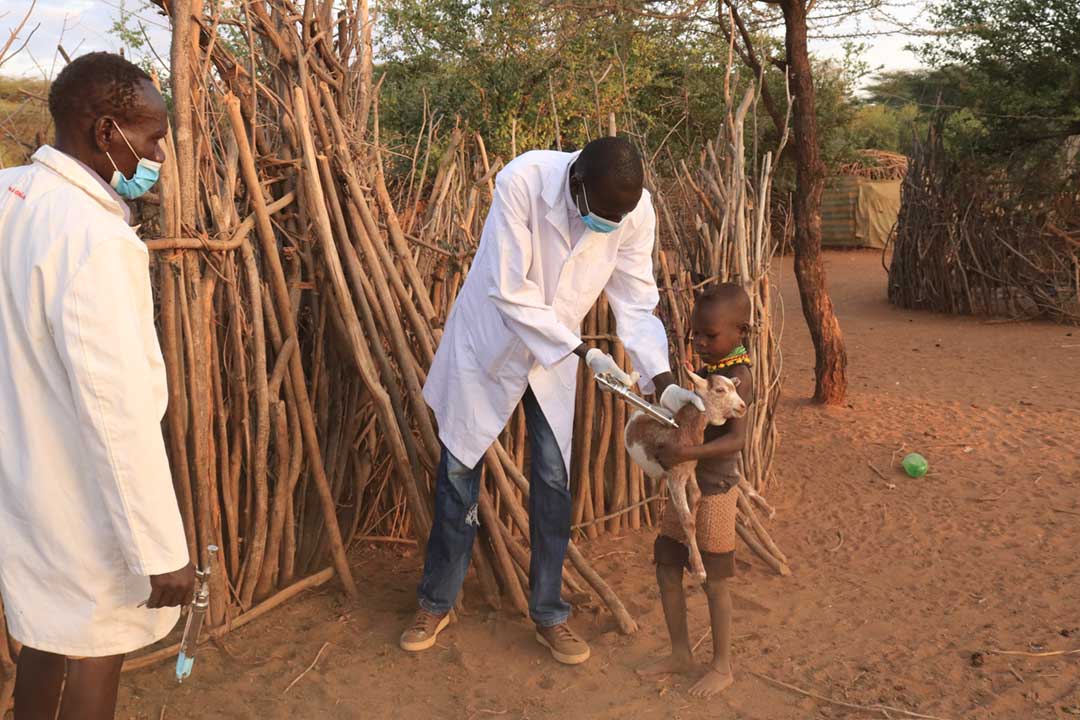
Think of Turkana, Kenya's geographically largest county, and you might think of ravaging seasonal droughts – dry spells so severe in their effects that they often force residents to rely on humanitarian aid.
They also keep large portions of the population on the move. Pastoralism remains one of the region's main economic activities, with households keeping not just a cow or two, but tens to hundreds of heads of livestock. Irregular rainfall patterns oblige the herders to migrate from one place to another, guiding their cows, sheep, goats and camels to better pasture.
"With my first child, I always missed out on clinical appointments since my husband was never around to help take care of other chores."
– Teresa Akiru
Often, their migratory trails take the herds across international boundaries – Turkana fills one of Kenya's northern horns, and borders Uganda, South Sudan and Ethiopia.
As imaginary as country frontiers may seem to a herdsman and his herd, crossing those invisible lines in the arid landscape can make it difficult for the national health system to keep up.
Invisible lines, real hurdles
According to Matthew Korinyang', the Chief of Loima, a Turkana constituency, the wandering herders spend long periods – often 60 days or so, he estimates – in foreign lands, typically staying in rural zones without access to health care and other key services.
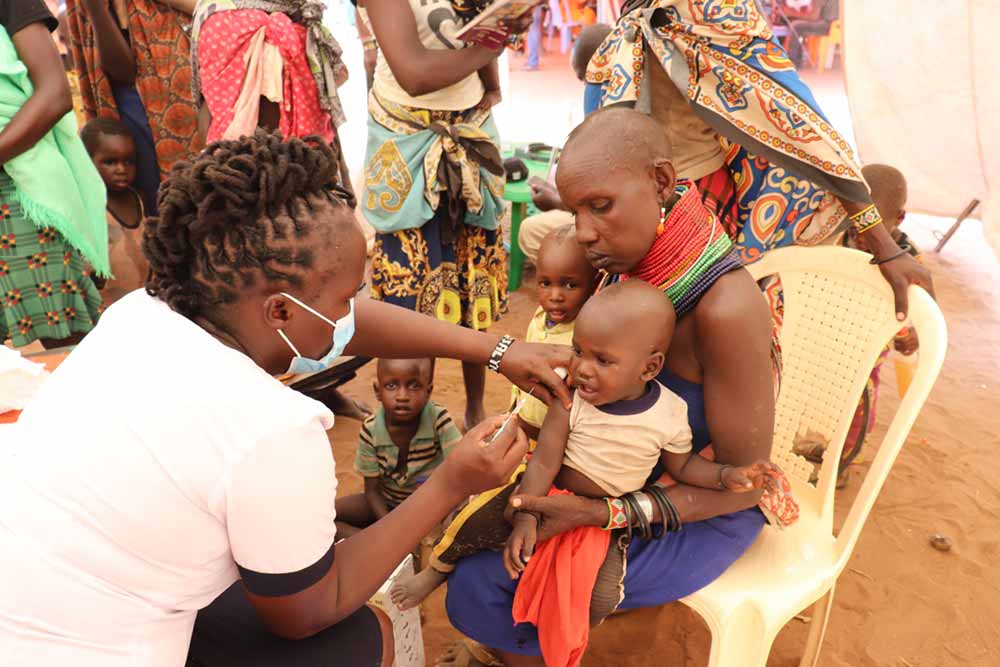
Credit: County Government of Turkana.
Large, extended families tend to divide, leaving a team behind. Smaller families are more likely to travel as a single unit. But even those left at home may end up cut off from routine care, Korinyang' explains. Poor access roads and the long distances to health centres are a challenge in a county which covers a land area of close to 72,000 km2.
"The women and children therefore end up missing out on the health services until the time when [families] decide to come back home," says Korinyang'.
Turkana generally lags well behind the rest of the country on access to routine immunisation. According to the 2022 Kenya Demographic Health Survey (KDHS), just 60.1 % of children in Turkana County had received all basic recommended vaccines by 23 months of age, which was 20 percentage points (pp) below the national rate, and 24 pp below World Health Organization's global coverage rates with DTP3, the third dose of the basic diphtheria, tetanus and pertussis-containing vaccine, a conventional proxy for full vaccination.
But a promising strategy launched by the County Government of Turkana, the Kenyan Ministry of Health and international partners in 2018 is helping to tackle the pastoralists' challenge, by bundling up vital services, and bringing them closer to this mobile population.
The County, together with its partners, has made a practice of organising One Health outreach campaign known as "Kimormor" whenever the pastoralists return to Kenya, hoping to catch up families who have missed out on vital services.
Kimormor is a Turkana word which loosely translates to "coming together to get a desired objective," as explained by Loima Subcounty Administrator Titus Ekiru. That happens to serve as a reasonable strapline for the One Health concept too, which seeks to understand and address human, animal and environmental health as shared and continuous.
"One Health approach, Kimormor, is an approach that has seen governments and non-governmental organisations join hands while giving support to the locals in terms of animal and human health alongside the delivery of other key government services," Ekiru explains.
Kimormor comes to Loima
In June, Kimormor came to Loima, targeting the families of pastoralists who had just arrived from Uganda. The nine-day event was held across the subcounty, and benefitted a large number of residents, according to Titus Ekiru.
Margaret Kuchal's nine-month-old baby was among the children who had received their measles vaccine during the outreach.
Kuchal had moved with her husband to Uganda earlier in the year, she said, with the child missing a number of vaccines. "This is the third time we had a Kimormor outreach in this location. It is a good initiative that should be emulated by other counties," she says.
Have you read?
"We appreciate the support we have received through this Kimormor, which includes human and livestock services among others," says Teresa Akiru.
The pastoralists had returned abruptly to Kenya in mid-year, Akiru explained, after a conflict flared up with counterparts in Uganda.
"We largely depend on the animals for their meat and milk; on some rare occasions, we sell them in exchange for money to cater for other family needs," says 40-year-old Akiru. When the rains are late, her husband and older sons join other pastoralists on the road to Uganda in search of forage.
Though the migration comes with risks – of conflict, among others – home isn't necessarily the easier, or safer, option. Akiru explains that with the huge burden of responsibility left to them back home, the women always end up missing out on a number of key services.
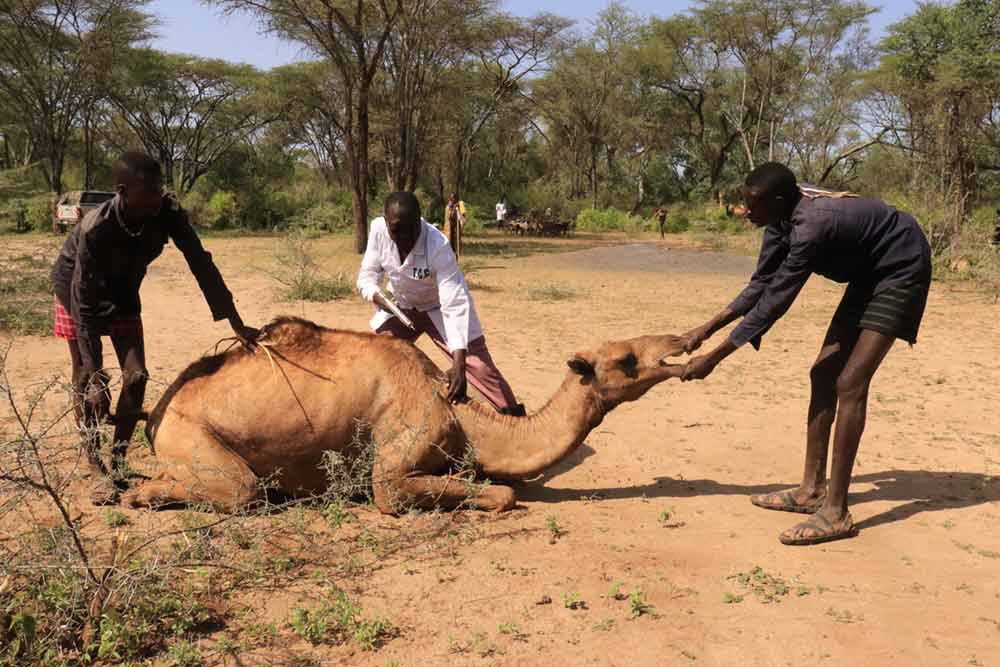
Credit: County Government of Turkana.
"With my first child, I always missed out on clinical appointments since my husband was never around to help take care of other chores," she explains.
Akiru says that that's a common story: Turkana women often miss out on antenatal and postnatal care during pregnancies while their husbands are out to looking after the animals. Kimormor is a valuable opportunity to catch up on both fronts.
"We thank God for this noble exercise and our hope is that these services will be provided again in the near future," says Ekwam Lodot, who also had all her animals treated during the outreach.
All together, now
Turkana County Chief Officer for Preventive and Promotive Health, Peter Lomorukai, says the human health services offered at Kirmormor sessions range from routine immunisations, antenatal and postnatal care, to family planning, and public education for pregnant and lactating mothers.
"Other services offered included health talks, nutrition services, human papillomavirus (HPV) vaccines, water and sanitation hygiene," he explains.
"One Health strategy and its modified version, ‘Kimormor’, is the best approach to reach the pastoralists. We have also noted that the population is vulnerable and a substantive health facility is required to address malnutrition and other essential services."
– Peter Lomorukai, Turkana County Chief Officer for Preventive and Promotive Health
Apart from human health, the service providers also offered health services for animals ranging from deworming, vaccinations and treatment, to extension and surveillance services.
The County Executive Committee Member for Agriculture, Livestock Development and Fisheries, David Ekirudi, says that the strategy has also made it easier to collaborate with the Department of Human Health to control zoonotic diseases.
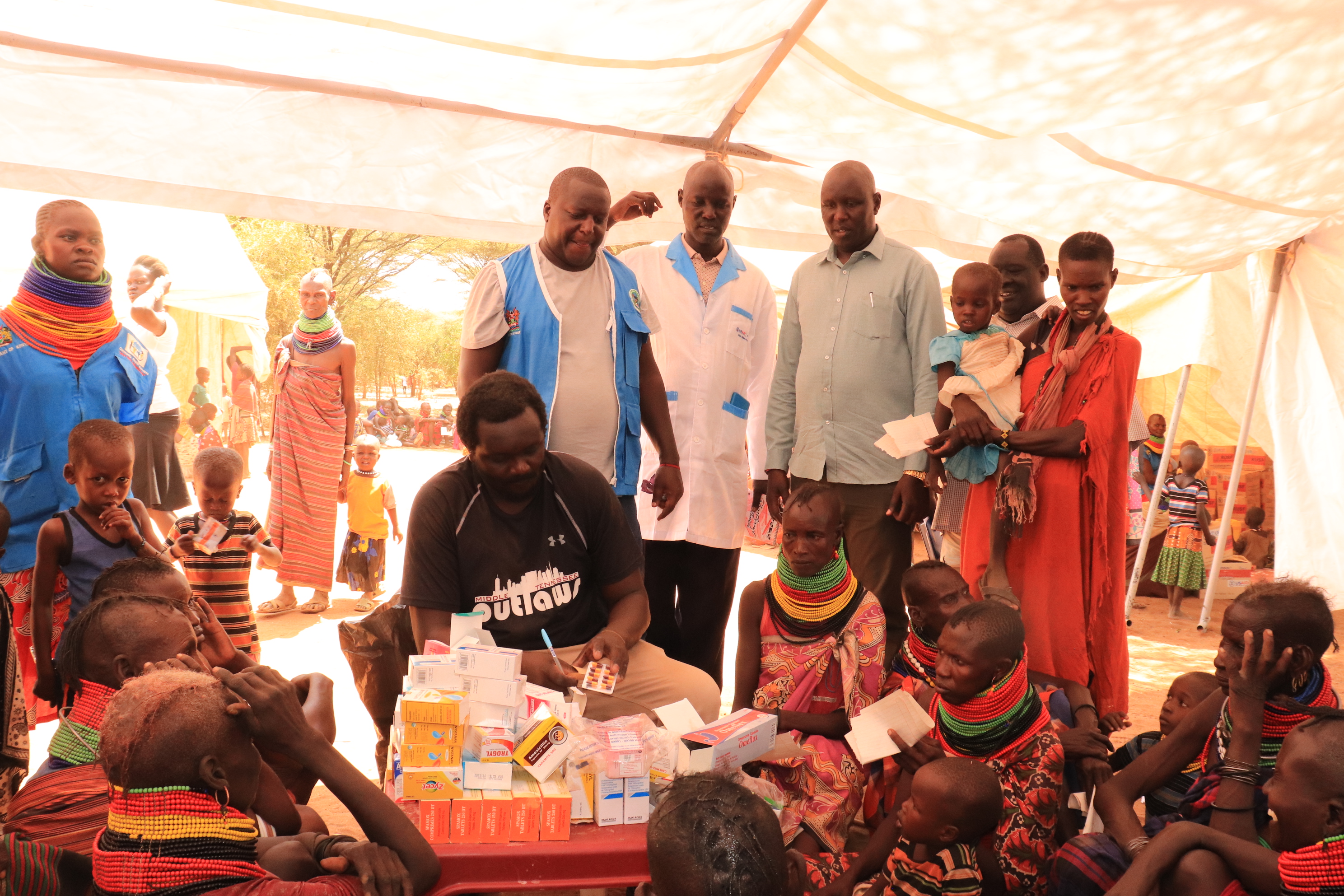
Credit: County government of Turkana
Moreover, the outreaches offer an occasion to make other government services, like National Hospital Insurance Fund registration, ID cards and birth certificates, more accessible to these traditionally hard-to-access communities.
Mobilising a mobile people
Even if an integrated animal and human health camp is a major draw, notifying a scattered, transient population to expect a Kimormor session is its own challenge.
Loima administrator Ekiru explains that one week before the outreach, the county had tasked the community health volunteers (CHVs), chiefs and elders to mobilise the locals along the migratory routes that had been mapped out in preparation.
The mobilisers often target households and watering points where they are always sure of getting a larger audience.
"The CHVs always relay the findings they get on the ground in terms of vaccine defaulters, pregnant women including those yet to be enrolled for antenatal clinics and the residents in need of government registration services," says Ekiru.
Sometimes, he says, the families may be gone for as long as three to six months, depending on the rainfall patterns.
Loima Sub-county Public Health Nurse Peter Ekope says the strategy is key in ensuring all the immunisation defaulters and pregnant women are tracked down to get the health services.
"A One Health strategy and its modified version, 'Kimormor', is the best approach to reach the pastoralists. We have also noted that the population is vulnerable and a substantive health facility is required to address malnutrition and other essential services," said Lomorukai.
Lomorukai said that the programme has been a success, made possible by support from the Kenya Red Cross, International Rescue Committee Core Group Partners Project, World Vision, UNICEF, USAID Nawiri and other partners.
Meanwhile, the USAID Imarisha Jamii Acting Chief of Party, Dr Evans Osembo, emphasised the need to scale up defaulter tracing to get more children immunised.
More from Angeline Anyango
Recommended for you

